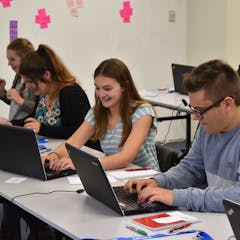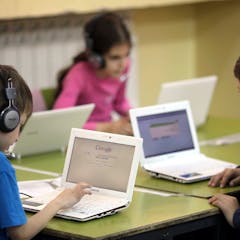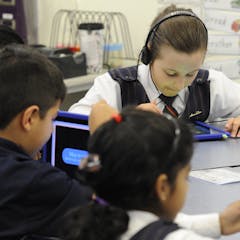
Articles on ipads
Displaying all articles

Wanning Sun spent nearly a decade talking to migrant workers at the Apple factory in China’s Shenzhen about their intimate lives – and how their relationships are affected by inequality.

Recent polling shows more than 90% of Australian parents think their kids’ screen time is a problem.

Thanks to the prevalence of technology, children are exposed to thousands of commercials a year. How can parents make their children more aware of how commercials influence what they think and do?

Children exposed to scenes of violence may develop a view that the world is more dangerous than it actually is.

Many parents are demanding less technology use in the classroom due to the amount of screen time children get at home. This story explores whether maths education and technology go hand in hand.

Video games have been helping kids to learn for years, here’s how.

Laptops in class are distracting – even for the most motivated students.

A third of families living below poverty level access the Internet only through their phones. And young people from these families get access to few learning opportunities.

There’s a great deal of debate about what devices schools should be using. But educators should be focusing on how children learn, not what they learn on.

Research shows that preschool children take characters from popular television shows and movies and blend them together to create complex oral stories.

Educational technology can be a powerful tool, but it must be accompanied by new, modern teaching methods.

Adults and youngsters are willing to queue overnight to get their hands on the latest product release from Apple and children appear to be drawn to iPads because of the immediate feedback they get when…

The computers for schools program, which involved federal funding for the supply of laptops to high school students, is set to end in June. The program was a central piece of the former government’s “digital…
